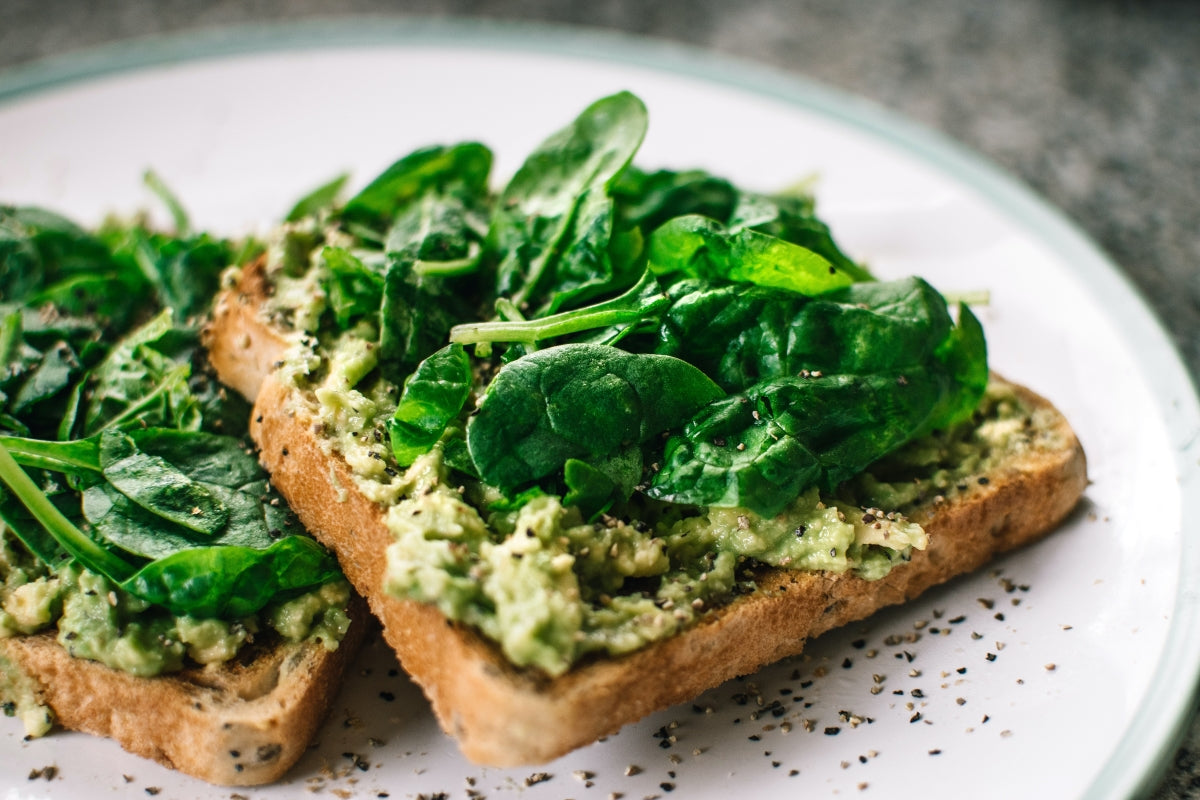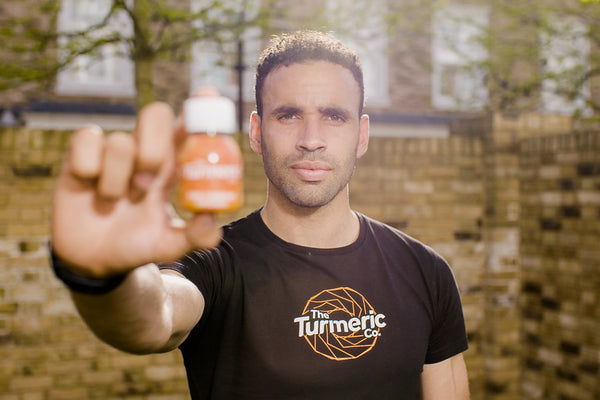Do you wake up in the morning and think ‘why do I feel so tired? I could’ve sworn I went to bed on time last night…’ but somehow feeling refreshed is still evading you? Some people aren’t morning people, but if a power nap just doesn’t cut it and you aren’t sure where the root of the problem lies, then it’s time to consider your diet, lifestyle, and your body.
Let’s look at some of the reasons why you might not sleep well, and some natural sleep remedies to help you drift off to the land of nod.
Psychological Reasons You’re Feeling so Tired
Stress
Stress levels and sleep go hand in hand. Often spinning in a stress-sleep cycle, stress can affect your sleep quality and your lack of sleep can make you stressed. How frustrating!
High stress levels can contribute to restlessness, trouble falling asleep, waking up in the night, and unpleasant dreams or nightmares. All the things you don’t want to happen when you’re tucked up, basically! If you’re feeling tired and lethargic during periods of high tension, then your stress levels may be why.
Worried about your stress levels and want to rebalance yourself through lifestyle choices? Learn how to combat stress and anxiety through nutrition.
Burnout
Burnout is a state of exhaustion caused by feeling overwhelmed, unenthused, and unfulfilled. A lot of professionals in demanding jobs and students struggle with burnout, which manifests in many as a mental lethargy rather than a physical exhaustion.
If you’re tired of feeling tired, then this probably means you’re suffering with burnout and it’s leading you to feel disinterested and disengaged mentally.
Lifestyle changes can help here, like setting time aside for yourself and being strict about actually taking breaks when they’re due and not working through them.
Nutritional changes may help your outlook and brain chemistry, specifically through roots like ginger. Adding ginger into your diet has been shown to increase the production of happy hormones (serotonin and dopamine), helping to keep you positive and battling mental fatigue. Try our raw turmeric and ginger shot box today.

Depression and Anxiety
Depression and anxiety contribute to feeling tired and lethargic.
Disordered sleep has long been associated with anxiety because a person’s anxious thoughts keep them up at night, making it difficult to unwind and sleep well because their brain is still very much active.
Depression is also closely linked to sleep quality. Much like stress and its relationship to sleep, a lack of sleep can be caused or bring on the symptoms of depression, and its not always clear which came first in some cases.
People with depression may also feel a sense of disinterest in things they used to love, hopelessness, difficulty concentrating, and apathy. Not only does depression affect sleep, but it also creates a sense of lethargy that can be difficult to overcome. Feeling fatigued, both mentally and physically, can be draining, so make sure you reach out if you’re feeling this way.
Physical Reasons You’re Feeling so Tired
Iron Deficiency (Anaemia)
Anaemia is a health condition that affects your red blood cells. Someone with anaemia lacks enough healthy red blood cells to carry oxygen around your body, leading to you feeling tired and lethargic in day-to-day life because your brain and body are receiving less ‘power’.
Luckily, this is treatable with medication such as iron tablets and eating iron-rich foods like beetroot, leafy veg like spinach, seafood, and red meat.

Underactive thyroid
Let’s get medical! An underactive thyroid (or hypothyroidism) means your thyroid gland doesn’t produce enough hormones that help to regulate your body’s metabolism. Basically, an underactive thyroid gland means your body isn’t turning the food you eat into energy as effectively as it should be.
Your doctor can help you with this with daily tablets if you suspect you’ve got an underactive thyroid gland.
Lifestyle reasons you’re feeling so tired
Poor diet
A poor diet also contributes to feeling tired and lethargic.
For example, a restrictive diet like cutting out carbohydrates to lose body fat, can lead to you having very low energy levels. Carbs are fuel for the body, so if you’re not fuelling your engine it’s going to stall. In fact, it’s one of many foods that give you energy.
If you’re not eating a balanced diet, then this could also be contributing to feeling exhausted. Fresh foods like spinach, peanuts, avocado, fish, beef, and fruit contain magnesium, an important mineral that helps keep your energy levels up and your mind alert. If you’re relying on processed foods in your diet instead, then this could be why you’re feeling tired and lethargic all the time. You may also want to look into taking vitamins for energy such as vitamin B, which can support your body to maintain energy levels.
Beetroot is another great vegetable to incorporate into your diet because it contains nitrates to help improve your alertness and support in day-to-day activities. It’s one of the many reasons we use it in our raw turmeric and beetroot shots.

Alcohol consumption
We all like a drink on a Friday evening after a long week or a glass of wine with dinner, right? However, everything in moderation. Excessive alcohol consumption can contribute to you feeling exhausted and may hinder your ability to sleep well.
Alcohol can make you spend more time in deep sleep and inhibit you entering the lighter stage known as REM sleep (Rapid Eye Movement). It’s this lighter stage that is restorative to your mind and body, so skipping this stage due to alcohol consumption can make you more tired the next day regardless of a lie-in.
Caffeine consumption
Coffee and tea are huge staples of our diets. Some people drink them for energy, some people drink them just for the soothing comfort of a hot drink.
However, too much caffeine or even a little bit before bed can really disrupt your sleep. Caffeine has a half-life of around 5 hours, meaning half of its concentration stays in your system after this time. If you’re having a strong cup of tea or coffee at around 5pm, then chances are there’s still a fair amount in your system come 10pm.
Essentially, if you’re looking for a natural sleep aid - cut back on the caffeine for a better night’s sleep!

Sleep schedule
Now, stop us if you’ve heard this before, but a lack of sleep schedule or even an unbalanced one can leave you feeling tired and lethargic all the time. We know, shocking.
If you’re burning the candle at both ends or ignoring when your brain and body are telling you to sleep, then you’re going to wake up very tired. Getting into a sleep cycle will really benefit your energy levels, so be strict with how long you stay on your phone or read at night, and reduce those power naps!
Dehydration
Your body needs water to keep functioning. Your skin, sensory organs, internal organs, and brain all need water to keep them performing at their optimum. When you’re dehydrated, you’re often less alert and less productive.
Dehydration doesn’t just make you physically tired, but it also contributes to brain fog or mental fatigue. This is why drinking plenty of water is important day to day, not just during and after exercise.
Take control - no more feeling tired and lethargic!
So, the answer to ‘why am I feeling tired and lethargic?’ could have many answers, and it all depends on your lifestyle and personal circumstances. No more feeling fatigued, counting sheep endlessly, and no more mental burnout, it’s time to welcome a good night’s sleep back into your life. From listening to sleep music to reducing your amount of power naps, there is no ‘one-size-fits all’ when it comes to natural sleep remedies. Reduce your stress and readdress your nutrition with the help of our turmeric shots as part of a balanced approach and seek a medical opinion where necessary to slip softly into sleep again.

The Hal Robson-Kanu Guide To Fitness & Nutrition
Gain exclusive insight into habits that will make every day a healthy and fulfilling one.













